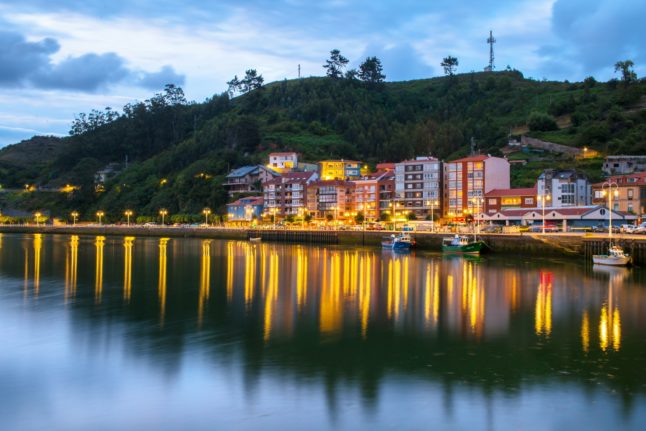The Asturias regional government is updating its tourism laws in order to soften the impact of short-term holiday lets on their local property market.
Nestled between Galicia and Cantabria along Spain’s northern coast, Asturias isn’t a favourite spot among foreign holidaymakers, but during the summer months hundreds of thousands of Spaniards choose to spend their holidays there due to the cooler weather, which has resulted in the proliferation of Airbnbs, higher rents overall, and many landlords only giving long-term tenants 10-month contracts so they can instead let out their properties to tourists for astronomical amounts during July and August.
Rents increased by 7.9 percent on average in Asturias in 2023, according to property portal Idealista.
As a result, Asturian authorities are trying to intervene. Limits on the number of short-term rentals, including requiring permission from neighbours before they are allowed in shared buildings, as well as a ban on renting out single bedrooms and giving more power for local councils to try and protect property markets from tourist properties are all touted as measures to be introduced in the northern Spanish region.
This comes as regions around Spain try and find ways to limit tourist rentals. In recent years, especially post-pandemic, an influx of tourists and high-earning foreign digital nomads to Spain staying in temporary accommodation such as Airbnb has contributed to rental prices skyrocketing. In cities such as Málaga and Barcelona, the problem is such that some locals are being priced out of their own neighbourhoods within the space of a couple of years.
READ ALSO: ‘Get the f*ck out of here’ – Spain’s Málaga plastered with anti-tourism stickers
Other factors causing this spike in rents are the overall lack of stock (especially social housing), high demand among Spaniards as employment in the country increases and difficulty in accessing mortgages and properties to purchase, leaving them with no other option but to rent.
Though there is no fixed date for approval, the Asturias government is hoping to quickly find a consensus between the different parties in its regional parliament, town councils, homeowners associations and business groups.
Gimena Llamedo, vice president of Asturias, says the regional government will move forward with reforms to combat what she sees as the problem of tourist rentals at both the national and local level: “It is a national reality and in Asturias we have already detected some of them. We want to anticipate major problems before they arise as we’ve always done before,” she said.
The Asturias regional government held a public consultation prior to the proposed reforms, which received more than thirty suggestions from business and tourist associations and private owners. “The high level of participation demonstrates the interest in this issue,” Llamedo adds.
New rules
As part of the proposed rules, homeowner’s associations in a building will be required to give their consent for a tourist accommodation (known as una Vivienda de Uso Turístico or VUT) or holiday home (vivienda vacacional or VV) to be opened and operated in their building.
READ ALSO: La Comunidad – What are my responsibilities if I own a property in a building in Spain?
That is to say, landlords will need to be legally required to get the explicit consent of the la comunidad if they want to operate any type of tourist accommodation within a shared building.
Another of the proposed changes is to ban single bedroom rentals and for landlords to use entire tourist homes and flats. Owners operating tourist rentals in the region will also need to have water and electricity consumption registers fitted in their properties.
The reform will also likely introduce changes to definitions for “saturated tourist areas”, which will be renamed “protected tourist areas”. The government will have the power to declare a council area or specific municipality protected when tourists put the environment or cultural heritage at risk, or when the maximum levels of tourist supply and demand are exceeded, though it is for now unclear what those thresholds would be or how’d they be measured.
Once the legal changes have been made and approved, tourism companies and landlords already registered in the Register of Companies and Tourism Activities in the region will have a maximum period of six months to adapt to the new regulations.
Those that do not comply with the new regulations will be hit with a hefty new set of fines for non-compliance. Minor infractions are set between €150-1,500; serious offences between €1,501-€15,000; and very serious ones between €15,001-€100,000.
In Asturias there are currently 5,696 properties registered for tourist use, according to the study from the University of Oviedo.
The number of tourist rental flats grew exponentially after the pandemic: in the period between 2010-2019 they opened at an average of 250 a year, a figure that has soared to over 600 a year from 2020.
READ ALSO: Which cities in Spain have new restrictions on tourist rentals?



 Please whitelist us to continue reading.
Please whitelist us to continue reading.
Member comments